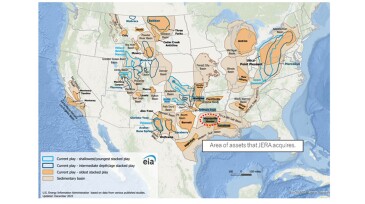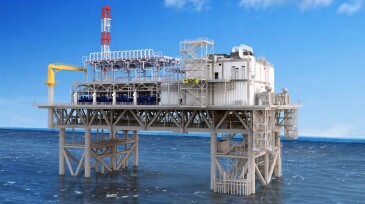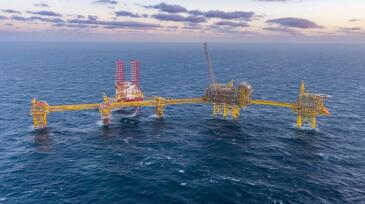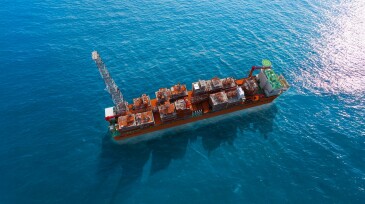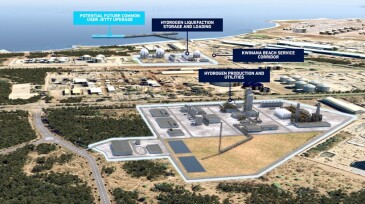Field/project development
An earlier deal to double Israel’s gas exports to Egypt led to approval of Leviathan’s Phase 1B expansion by guaranteeing long-term cash flow to finance the project.
Marking a major milestone as the Gulf of Mexico’s second 20K-psi deepwater development, the project underscores how advanced high-pressure technology, management of flow challenges, and the FPS’s role as a regional hub are helping open the door to more Inboard Wilcox development.
The supermajors are seeking new US licenses to develop cross-border natural gas fields.
-
This paper describes a study to design and implement an enhanced oil recovery project via huff ’n’ puff using Y-grade injectant.
-
This study compares water-based chemicals including surfactants, nanoparticles, and ketones that can be used for enhancing the oil recovery of shale-oil reservoirs.
-
JERA joins Tokyo Gas as a player in the Haynesville as Japan targets the US Gulf Coast as key to building global LNG supply chains.
-
BP’s new electric gas compression platform at Shah Deniz, Azerbaijan’s largest natural gas producer, is expected to sustain exports to Europe even as the field enters decline.
-
ExxonMobil joins BP, Chevron, and TotalEnergies in greenlighting new investment projects in Iraq in 2025 as the government targets oil production of 6 million B/D by 2029.
-
Liquefied natural gas (LNG) exporters in the US plan to more than double the country’s liquefaction capacity by adding an estimated 13.9 Bcf/D between 2025 and 2029.
-
TotalEnergies and the Danish Underground Consortium complete a 7-year effort to redevelop the Tyra field, lowering emissions and extending field life.
-
Mozambique is poised to become Africa’s third-largest exporter of liquefied natural gas when Coral Norte comes onstream in 2028.
-
Australia’s H2Perth blue and green hybrid hydrogen project is expected to benefit from carbon credits from the offshore Bonaparte carbon storage facility where Inpex and TotalEnergies are drilling appraisal wells together with Woodside.
-
This paper describes an alternative lower-completion concept for developing Lower Wilcox reservoirs referred to as high-angle multifractured well design.






